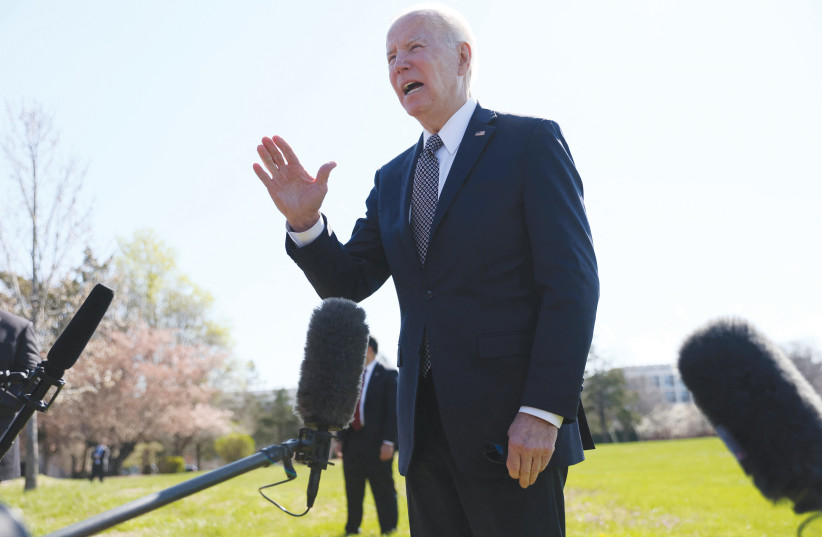Iran will not give up on its plans to avenge the 2020 US assassination of Quds Force Commander Qassem Soleimani, despite "regular offers" from Washington to lift sanctions and provide other concessions in return, a top official said on Thursday.
Over the last year, Iran and the United States have had indirect talks in Vienna to revive a 2015 nuclear deal that was abandoned by Washington in 2018 by then-President Donald Trump and subsequently violated by Tehran.
"The enemy keeps sending messages that if we give up on avenging Soleimani, they will give us some concessions or lift some sanctions," Revolutionary Guards' Navy Commander Alireza Tangsiri said. "This is pure fantasy. The Supreme Leader has emphasized the need for revenge and the Revolutionary Guards' top commander has said that revenge is inevitable and that we will choose the time and place for it."
There was no immediate response from the United States to Tangsiri's comment.
Trump reimposed sanctions on Iran, which in response boosted its nuclear enrichment program beyond the limits of the accord with world powers who sought to make it more difficult for Iran to develop a nuclear bomb. Iran says its nuclear program is solely for peaceful purposes.

Negotiations with the administration of President Joe Biden have mainly stalled over Tehran's demand of Washington to remove the Revolutionary Guards from its Foreign Terrorist Organizations list, something that the US would not be ready to consider unless the Guards agree to rein in their influence in the Middle East and cease threats against American forces.
Soleimani, head of the Guards' elite Quds Force, was killed by US air strikes in January 2020 while on a visit to Iraq's capital Baghdad.
US says Iran must address its concerns for sanctions relief beyond nuclear deal
The United States said on Thursday if Iran wanted sanctions relief beyond that of the 2015 Iran nuclear deal - an apparent reference to removing Iran's Revolutionary Guards from a US terrorism list - it must address US concerns beyond the pact.
"We are not negotiating in public, but if Iran wants sanctions lifting that goes beyond the JCPOA, they will need to address concerns of ours beyond the JCPOA," a State Department spokesperson said, referring to the 2015 deal by the acronym for formal name, the Joint Comprehensive Plan of Action.
"Conversely, if they do not want to use these talks to resolve other bilateral issues beyond the JCPOA, then we are confident that we can very quickly reach an understanding on the JCPOA and begin reimplementing the deal," the spokesperson added. "Iran needs to make a decision."
The US spokesperson was responding to a top Iranian official who earlier said Iran will not give up on its plans to avenge the 2020 US assassination of Quds Force Commander Qassem Soleimani, despite "regular offers" from Washington to lift sanctions and provide other concessions in return. Read full story
The Quds Force is the foreign espionage and paramilitary arm of Iran's Islamic Revolutionary Guard Corps (IRGC) that controls its allied militia abroad. The Trump administration put the IRGC on the State Department list of Foreign Terrorist Organizations in 2019, marking the first time Washington had formally labeled another nation’s military a terrorist group.
"Under any return to the JCPOA, the United States would retain and aggressively use our powerful tools to address Iran’s destabilizing activities and its support for terrorism and terrorist proxies, and especially to counter the IRGC," the State Department spokesperson said.
